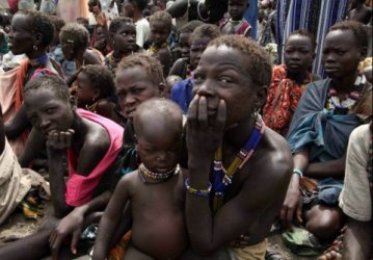Four people wounded in Akobo attack, Jonglei
October 24, 2012 (BOR) – At least four people are reported wounded in an attempted cattle raid allegedly by members of the Murle ethnic group in Jonglei’s Akobo county on Wednesday.

In a separate interview with Sudan Tribune, the commissioner of Akobo, Goi Jooyul, said the attack was carried out by Murle raiders, intent of rustling cattle from Niew-Niew.
According to Jooyul at 10.30am two men herding their cattle were injured when “attacked by Murle armed men”. The victims then fled to the village, pursued by their Murle assailants, where two more citizens were injured, including a woman.
The South Sudan army (SPLA) troops in the area engaged with the raiders but no one was killed, explained Jooyul.
In light of the Jonglei dissarmament programme, inaugurated by president Salva Kiir in March in reaction to escalating violence in the state, Jooyul said “our people were disarmed and they cannot defend themselves now, so the army came in and repulsed them, and the cattle were rescued”.
Over 1,000 people died in cattle raids and revenge attacks in 2011, which escalated in December when 6,000 armed Luo Nuer men attacked Pibor County, the home of the Murle tribe, leaving 20,000 people displaced by January 2012.
When the disarmament began, fears were expressed that some ethnic groups would be more thoroughly disarmed than others, leaving them vulnerable to attack.
Jooyul claims that the Murle are intent on destabilising other areas including Akobo,Uror, Duk, Twice East and Bor counties.
According to the UN Environmental Program the Murle were in Ethiopia until the 19th century. Some remained their until the 1990s while others were driven west by local Nilotes. They established an homeland in Pibor county, Jonglei state in the 1930s, since which, environmental pressures have impinged upon their pastoralist lifestyle.
Little evidence can be found to support the infertility claim which has been used to rationalise the child-snatching they are accused of. However, the motivation to rationalise the denigration of one of South Sudan’s pariah ethnic groups, in order to legitimise the attribution of blame, is self-evident.
Akobo resident Solomon Pur Thok, said the wounded are Nyabel Gatwech Reath, Koath Mayian Teny, Wany Wal Teny and Gatwech Puol Teny. They were airlifted to the state capital Bor, by the UN Mission in South Sudan on Wednesday.
(ST)
